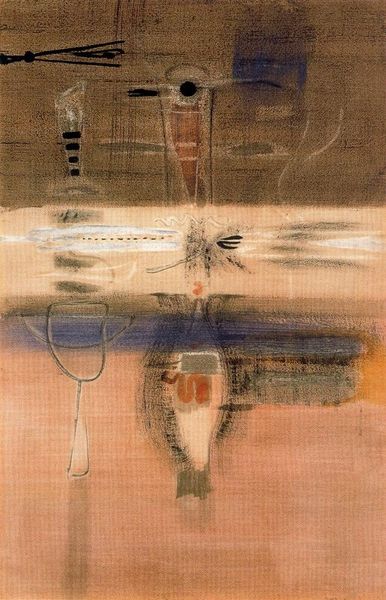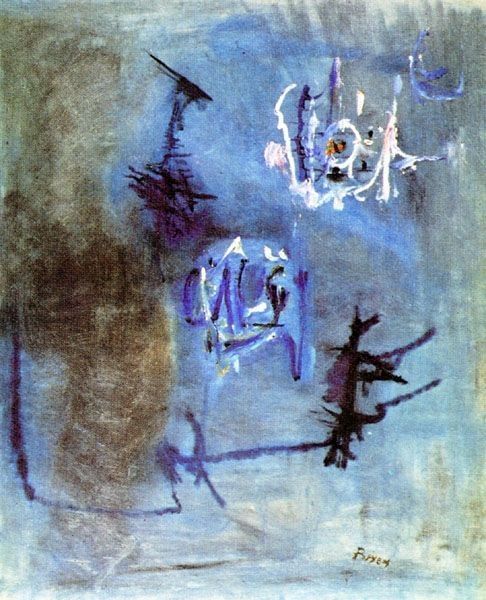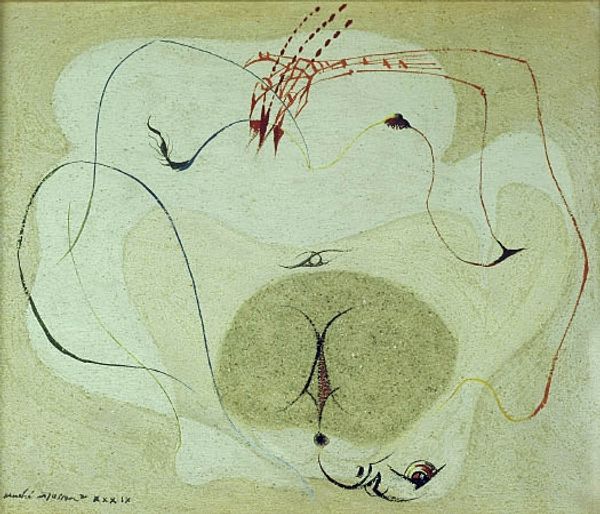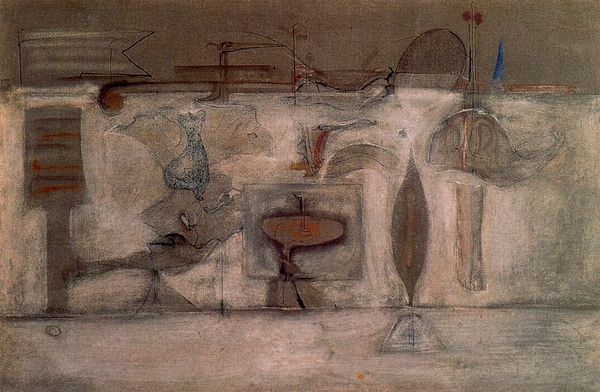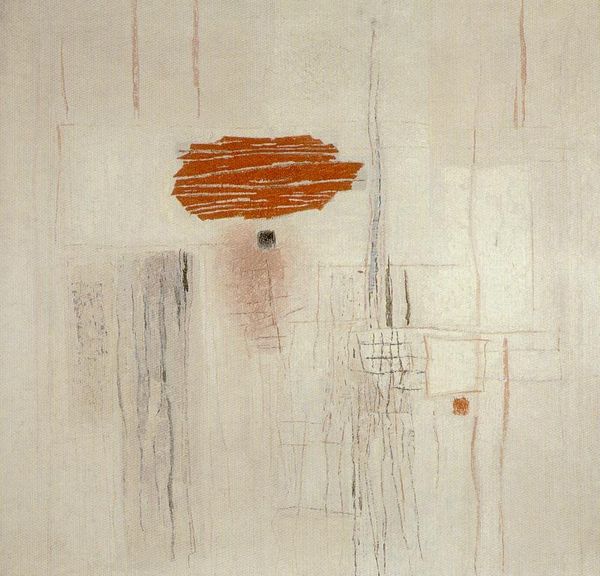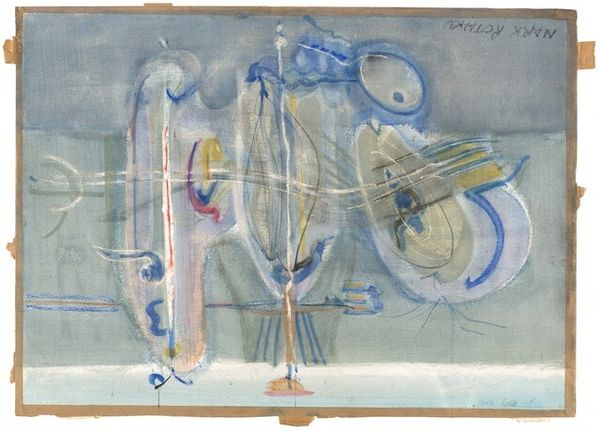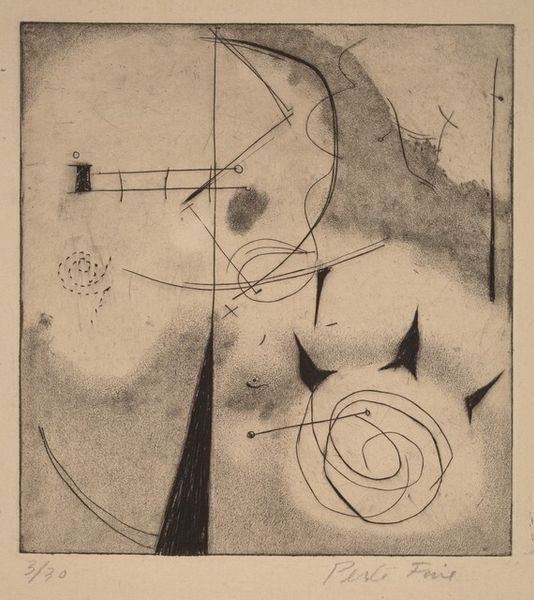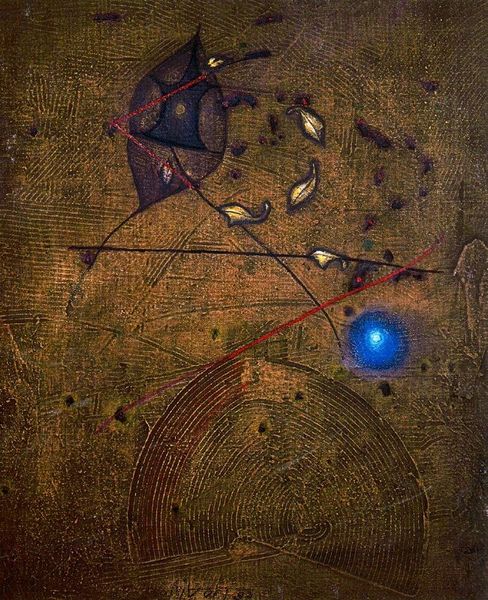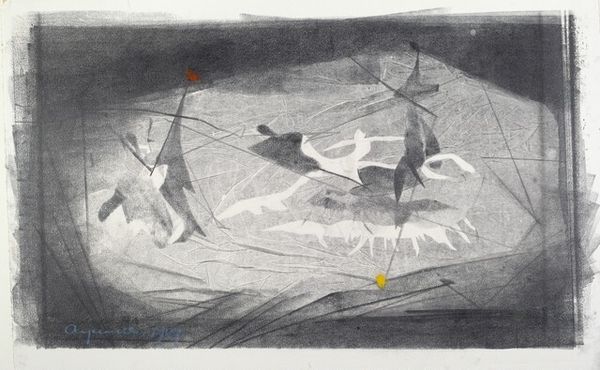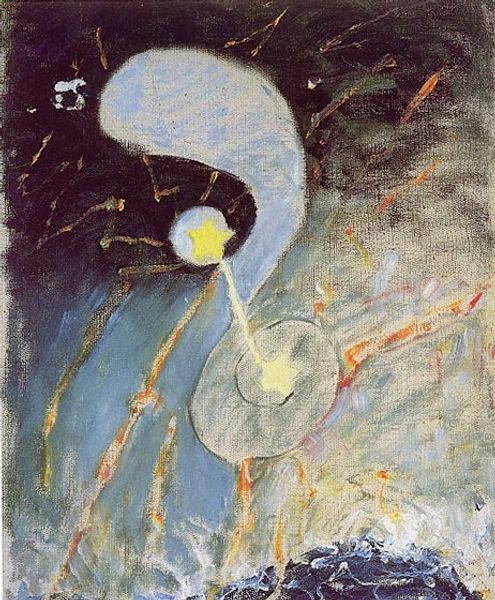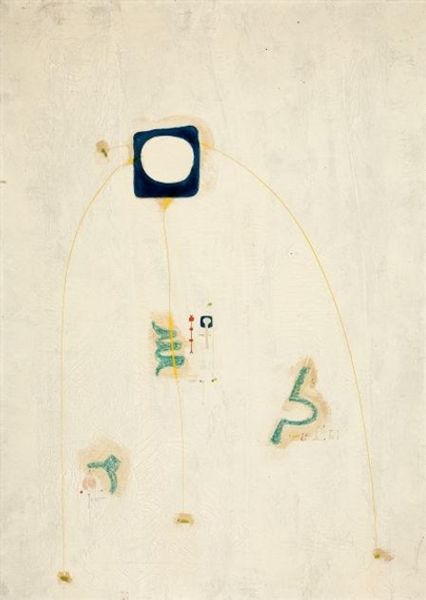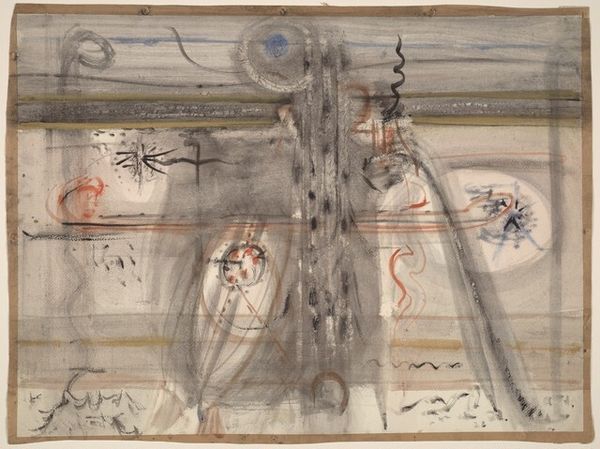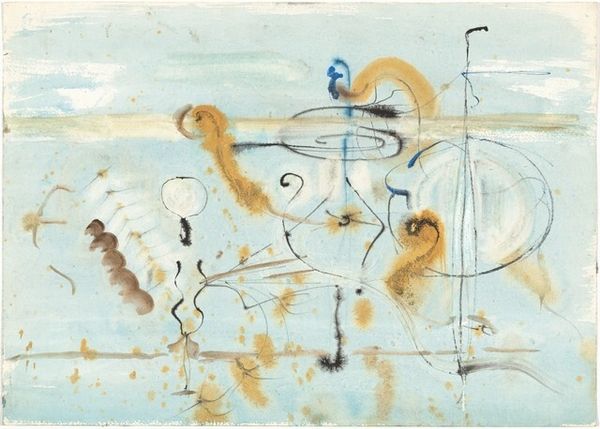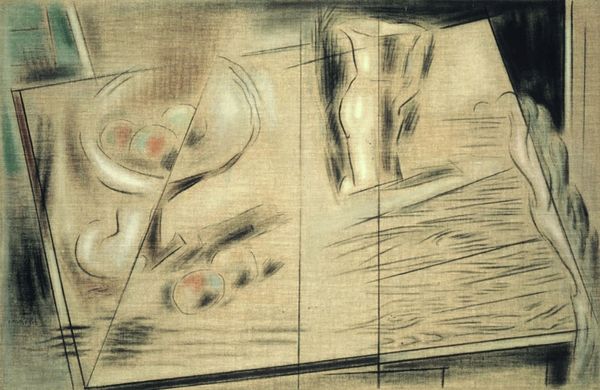
mixed-media, painting, watercolor
#
abstract-expressionism
#
mixed-media
#
water colours
#
painting
#
watercolor
#
abstraction
#
line
#
mixed media
#
modernism
#
watercolor
Copyright: Mark Rothko,Fair Use
Editor: We're looking at Mark Rothko's "Tentacles of Memory," created in 1946, which seems to employ watercolor and mixed media. I'm immediately struck by the sort of veiled figures and that almost haunting, muted color palette. What's your take on it? Curator: It's fascinating to consider this piece within the context of Rothko's development as an artist and the sociopolitical landscape of post-war America. What seems like mere abstraction to some can also be interpreted as the fragmented psyche struggling to make sense of trauma and displacement. What do those “tentacles” evoke for you? Are they reaching, grasping, or perhaps something else? Editor: I hadn't really considered displacement or trauma… To me, it was a reaching—like an attempt to hold onto something that’s already fading away. Curator: Precisely. Think about the historical moment. The end of World War II brought not only relief but also a profound reckoning with loss, both personal and collective. Rothko, like many artists of his generation, sought to express the inexpressible, the emotional residue of war. What role do you think abstraction plays in that endeavor, compared to more literal representation? Editor: It allows for ambiguity, for individual interpretation. A representational work would dictate a specific narrative, but this leaves space for feeling. Curator: Exactly. And who gets to write or control those narratives? This gets us to think about art not just as a decorative object, but as a site of meaning-making, potentially resistant to dominant ideologies. Does that resonate with your understanding? Editor: Absolutely, the ambiguity opens avenues to challenging the norm! I see so much more in the artwork after this conversation! Curator: And that's the power of art, right? To invite us to interrogate not only the artwork but ourselves, the times we inhabit, and the narratives we tell. It really does echo so much of Rothko’s journey, which in itself invites continued consideration.
Comments
No comments
Be the first to comment and join the conversation on the ultimate creative platform.
